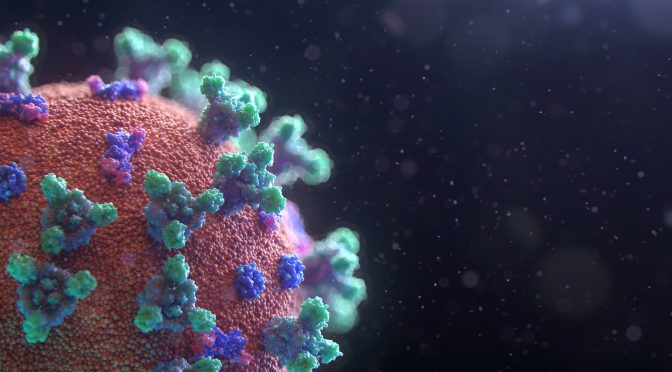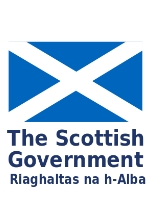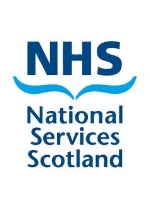
This guidance is issued jointly by the Department of Health and Social Care (DHSC), Public Health Wales (PHW), Public Health Agency (PHA) Northern Ireland, Health Protection Scotland (HPS), Public Health Scotland, Public Health England and NHS England as official guidance.
This Guidance was first published on the 20th October 2020 and updated on 21st January 2021 .
The guidance:
- seeks to ensure a consistent and resilient UK wide approach, though some differences in operational details and organisational responsibilities may apply in Northern Ireland, England, Wales and Scotland
- applies to all clinical dental services in all settings, including those provided on a private or independent basis Academic evidence has been considered in the development of this guidance, and in particular, relevant sections of published reports from 2 UK dental expert working groups, which include:

Amendment 144 of the Statement for Dental Remuneration was published on 22nd June 2020.

Amendment 143 to the Statement of Dental Remuneration covers:
- Duplicate study casts
- Practice allowance and reimbursement of practice rental costs – Designated areas.
Downloads:

This circular sets out for 2019-20:
- increases to national salary scales and post-specific salaries
- uplifts to fees and allowances
affecting:
- hospital medical and dental staff
- doctors and dentists in public health medicine and the community health service
- public dental service staff
- dental training grades
- associate advisors and assistant directors
- directors of postgraduate general and dental practice education (CRUMP)
- GP specialty registrars in general practice.

A new amendment to the Statement of Dental Remuneration (SDR) has now been released Memorandum PCA(D)(2019)2. The changes come into force on the 1st February 2019.

This amendment sets out:
- the scale of fees,
- rates of remuneration for salaried dentists,
- seniority payments,
- vocational training allowances
- maternity, paternity and sickness payment
- other allowances and reimbursements
Effective from 1st July 2019
Download Amendment No 141.

This letter advises NHS Boards and Practitioner Services of the publication of an amendment to the Statement of Dental Remuneration (SDR), Amendment No 139.
It also advises of the maximum patient charge for a single course of NHS dental treatment.

The letter advises NHS Boards and Practitioner Services of the intention to defer the coming-into-force date for electronic submission of orthodontic payment claim forms and requests for prior approvals from 1 January 2019 to 1 January 2020.

Re:
- Hospital Medical and Dental staff
- Doctors and Dentists in Public Health Medicine and the Community Health Service
- Public Dental Service staff
- Dental training grades
- Associate Advisers / Assistant Directors
- Directors of Postgraduate General and Dental Practice Education (CRUMP)
- GP Specialty Registrars in General Practice
NHS Circular PCS(DD)2018/2 detailed the increases to national salary scales and uplifts to fees and allowances in 2018-19 for the above staff groups.
This Appendix to the circular stated that the following tables would be provided under separate cover. This addendum now provides these tables.
Table 1
Total Salaries for Full-time Training Posts from 1 April 2018, updating Appendix 1 to the terms and conditions of service for hospital medical and dental staff and doctors and dentists in public health medicine and the community health service (Scotland) (2007).
Table 2
Total Salaries for Flexible Trainees Working Less than 40 hours per
week (Pre-June 2005 pay arrangements) from 1 April 2018, updating Appendix 1 to the terms and conditions of service for hospital medical and dental staff and doctors and dentists in public health medicine and the community health service (Scotland) (2007).
Table 3
Doctors and Dentists in Training – Flexible Trainees: (Post June 2005 Pay Arrangements) from 1 April 2018, updating Appendix 1 to the terms and conditions of service for hospital medical and dental staff and doctors and dentists in public health medicine and the community health service (Scotland) (2007).
Table 4
Guidance relating to GP Specialty Registrars (GPStR) from April 2018, updating Banding Supplements from Section E of NHS Circular: PCS(GPR)2009/1.
Table 5
Payment to GP Specialty Registrars
Table 6
Locum Tenens Appointments – banding supplements, hourly and weekly rates.

This circular authorises changes in the pay and national terms and conditions of service of all NHS employed staff detailed in the heading above.
The Scottish Government has agreed the following uplifts to basic pay for the above mentioned staff groups in order to balance
the Recommendations from the Doctors’ and Dentists’ Review Body (DDRB), Scottish Public Sector Pay Policy (SPSPP) and the recently agreed Agenda for Change (AfC) pay deal for 2018-21. All pay points up to £80,000 FTE will increase by 3% and all pay points at or above £80,000 FTE will be increased by £1,600, or the pro-rata equivalent for part-time workers.
The value of distinction awards and discretionary points for consultants remain unchanged.

This letter advises NHS Boards and Practitioner Services of the completion of the revaluation exercise of practice premises undertaken by the Valuation Office Agency (VOA) on behalf of the Scottish Government.
It advises of dissemination arrangements, on the use of the information now available, the arrangements for valuations following the national exercise and arrangements for reviews of valuations.

This letter advises NHS Boards and Practitioner Services of the new arrangements relating to the phasing down of dental amalgam. This includes guidance regarding alternatives to dental amalgam, when they should be used and the exceptions to this.
This letter also advises of Amendment No. 138 to the Statement of Dental Remuneration (SDR), which takes effect from 1 July 2018.

This letter advises NHS Boards of the introduction of a NHS Occupational Health and Guidance service for GDPs, members of the dental team and other practice staff.
NHS Boards are asked to issue the Memorandum to this letter to all dentists and dental bodies corporate on their dental lists.

This letter advises NHS Boards of a further revision of the Scottish Dental Access Initiative (SDAI) capital scheme which will take effect from 1 February 2018.

This NHS Circular from the Director of Health Workforce and Strategic Change sets out revised pay scales for dentists working in hospitals, public health, training and postgraduate education.

This letter advises NHS Boards of a further revision of the Scottish Dental Access Initiative (SDAI) capital scheme which will take effect from 1 December 2016.
From 1 December 2016 further revisions are being made to the SDAI capital scheme to reflect the continued improvements in access to general dental services (GDS) in most areas.
From 1 December 2016 offers of financial assistance, under the SDAI to establish new or expand or purchase existing NHS dental practices will be available only in the following designated areas where access to GDS availability is poor, i.e. in order to meet unmet patient demand:
- Grantown, Invergordon, Nairn, and Wick within NHS Highland
- NHS Shetland;
- Isle of Lewis within NHS Western Isles.
Download the full text from the Download link above.

The data shows that while oral health in P1 pupils is continuing to improve, the rate of improvement is slowing. The proportion of P1 children with no obvious decay now stands at 69% overall, with the average number of decayed missing and filled teeth (dmft) now standing at 1.21.
Across Scotland, socio-economic inequalities in the oral health of P1 children remain, with percentages with no obvious decay experience ranging from 55% for children in the most deprived quintile, (SIMD 1) to 82% for those in least deprived quintile, (SIMD 5).
Further details are available in the summary and full reports.
Downloads

This communication from the Scottish Government Population Health Directorate covers two areas:
- Scotland’s oral health plan: a Scottish Government consultation exercise on the future of oral health
- Defibrillators to independent dental practices providing NHS General Dental Services (GDS)



